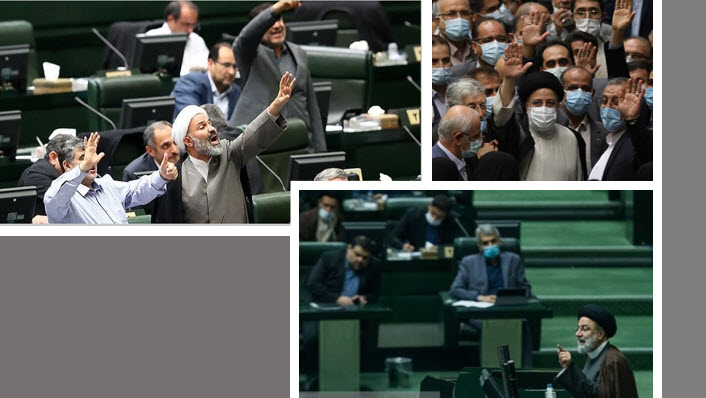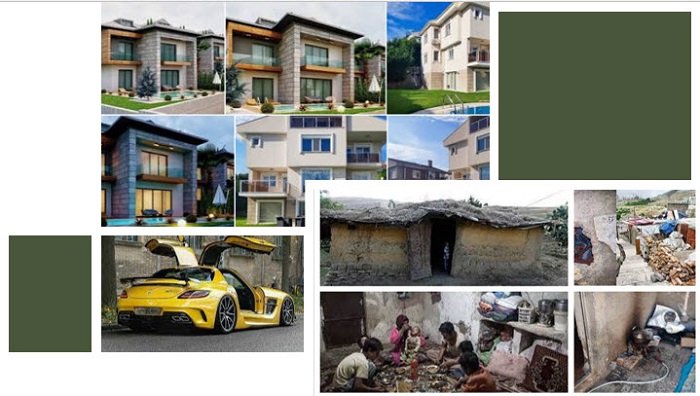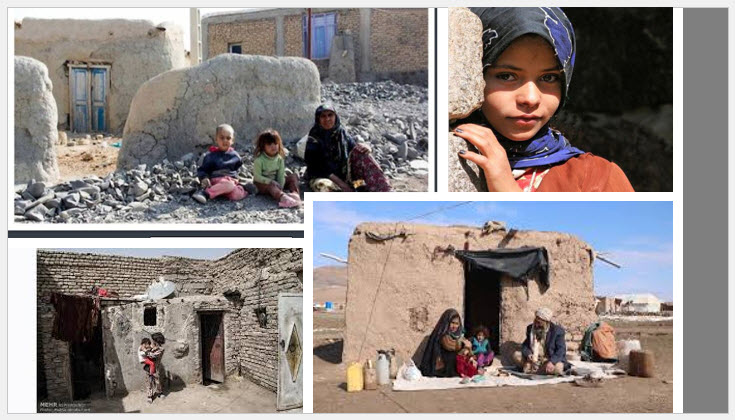
Ebrahim Raisi,s administration, and the selected parliament continue to make empty promises to revive the economy in order to shore up the regime’s crumbling credibility. Iran’s state-run media have mocked this, referring to the regime’s systematic corruption.
The main task of Iran’s closely controlled official media for decades has been to conceal the truth and disguise social and economic difficulties. Their everyday acknowledgment of Iran’s economic and social issues now speaks volumes about the country’s tumultuous time. President Ebrahim Raisi, his administration, and the selected parliament continue to make empty promises to revive the economy in order to shore up the regime’s crumbling credibility. Iran’s state-run media have mocked this, referring to the regime’s systematic corruption.
“The clear question now is: despite all the slogans and chants during the [sham] presidential and parliamentary election campaigns, has the situation changed? Certainly not. On March 8, the state-run Aftab-e Yazd daily reported that “the door revolves on the same heel as before.”
Rather than assisting the people, the regime just abolished the preferential currency exchange rate of 42,000 rials per dollar. Because this currency rate was utilized to import important consumer items, this move will worsen already-rising costs and inflation. Meanwhile, Raisi’s government has let 70,000 foreign vehicles into the nation and permitted terrorist groups like the Revolutionary Guards (IRGC) and its front firms to sell 1.3 million barrels per day of crude oil under the guise of the “private sector.”
“The sale of 1.3 million BPD by the private sector, combined with the government’s sale of 1.4 million BPD, is another bizarre decision that, in addition to fostering corruption, deepens the class difference between rich and poor,” writes Jumhouri-e Eslami. Institutions and organs will sell a portion of the 1.3 barrels of oil, which is illegal and will increase corruption in those bodies. The poor will not benefit, but the rich who have the power to obtain a license to sell oil become richer.”

” writes Jumhouri-e Eslami. Institutions and organs will sell a portion of the 1.3 barrels of oil, which is illegal and will increase corruption in those bodies. The poor will not benefit, but the rich who have the power to obtain a license to sell oil become richer.”
Iran’s inflation rate is hovering around 50%, thanks to the regime’s monetary policy, which includes printing banknotes to cover a massive budget deficit while maintaining a low 3 percent production rate.
The state-run Javan daily wrote on March 10 that “skyrocketing prices engulf people from eight angles, such as clothing, transportation, housing, education, municipal services, government and judicial services, and communication needs.”
Raisi’s government is handicapped by the regime’s own opaque economic and foreign policy agenda, which is centered on corruption and warmongering, so, he urgently tries to appease the restive populace by making empty promises like erasing poverty in two weeks or forcing prices to stop rising.
“With the simultaneous addresses of Ahmad Jannati, the leader of the Assembly of Experts, and [regime’s] president Ebrahim Raisi, the story of officials’ attempts to simplify economic challenges, such as the complicated concerns of poverty, reached a new level.” Jannati recognized that starving Iranians were unable to find bread and urged the president to intervene. “You cannot replace an empty stomach with words!” Raisi promptly ordered the eradication of poverty in two weeks, the state-run Jahan-e Sanat daily wrote on March 11.

Raisi’s government is handicapped by the regime’s own opaque economic and foreign policy agenda, which is centered on corruption and warmongering.
“It is inconceivable that Raisi’s government could eradicate poverty in two weeks or in a month. The United Nations gave 15 years to different countries in a special project with a lot of money to halve absolute poverty through ongoing planning. This project was never finished. So how on earth is it possible that a country like Iran, which is under sanctions and suffers from widespread economic mismanagement, could eradicate absolute poverty in two weeks?” On March 10, the state-run Etemad daily published an article.
But, restoring the nuclear deal and easing sanctions, would assist Iran’s poor production rate, high inflation, and massive unemployment? Will lifting sanctions, as Tehran’s apologists claim, improve the country’s economic crisis by increasing people’s purchasing power?
“The idea that we will overcome our great economic problems after reaching a deal seems very dangerous and foolish and is more like a childish illusion,” the state-run Resalat daily, close to Raisi’s faction, wrote on March 11.
“Our country’s main challenges are rooted in internal difficulties. We have issues like a worn-out administrative apparatus, financial indiscipline in the country’s financial and banking organizations, an economy rife with embezzlement, rampant corruption, the presence of economic mafias in various industries, and, most importantly, a lack of a development theory based on the country’s indigenous geographical habitat,” Resalat adds.
MEK Iran (follow us on Twitter and Facebook), Maryam Rajavi’s on her site, Twitter & Facebook, NCRI (Twitter & Facebook) and People’s Mojahedin Organization of Iran – MEK IRAN – YouTube

